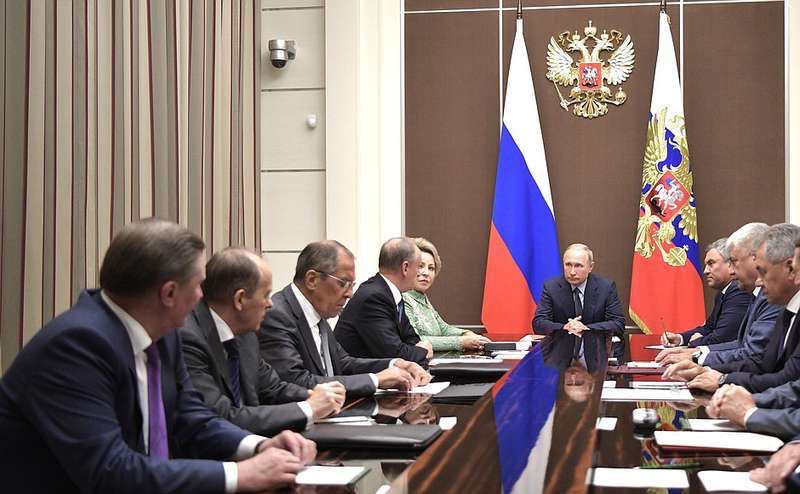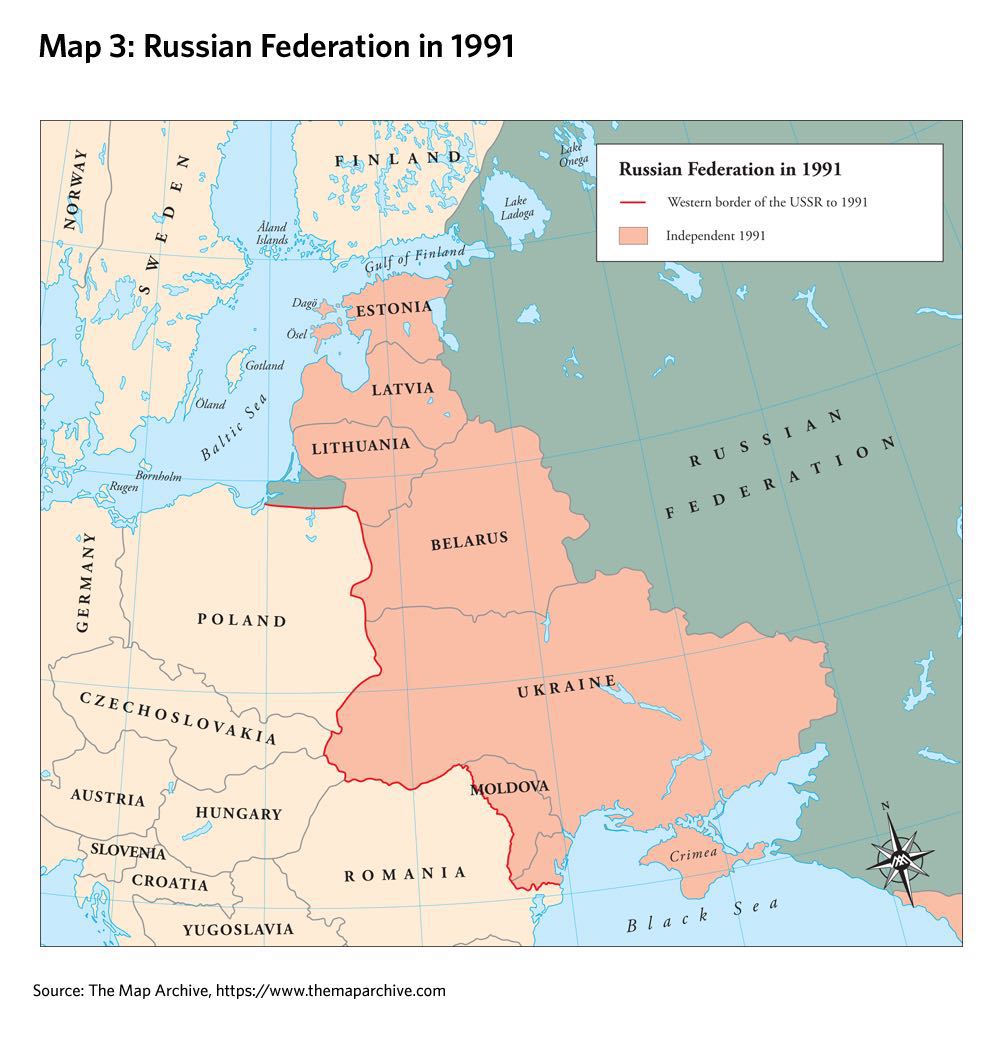Many think that Russia's agressive foreign policy is of the making of president Vladimir Putin. In this report for the Carnegie Endowment for International Peace researchers Julia Gurganus and Eugene Rumer show that there is nothing new to it. Russia’s long-standing quest for strategic depth, great power ambitions, and uneasy ties with the West for centuries have left an indelible imprint on Moscow’s foreign policy. And will be with us for the foreseeable future, be it with more flexibility and less ideological constraints. Here are their conclusions.
 Putin with his Security Council
Putin with his Security Council
Same Ambitions
Today, Russian foreign policy has embraced many of the same ambitions that drove Soviet foreign policy during an earlier era. Whether Soviet or Russian, the ambitions of the country’s foreign policy far exceed the 'sphere of privileged interests' claimed by then president Dmitry Medvedev in the aftermath of the 2008 war with Georgia. These ambitions manifested themselves even before the country was able to act on them.
Once Russia recovered a measure of its economic strength, political stability, and military muscle, it did not take long to reclaim a significant part of the legacy of Soviet foreign policy. Some significant elements of the Soviet era — rigid ideological guidelines and a vast pool of resources — are missing from a policy that now reflects greater flexibility and adaptability, lacks ideological constraints, and blends opportunism with the careful use of relatively modest resources.
Diverser Toolkit
Along with those ambitions, Russian foreign policy has inherited a diverse and tested toolkit to advance the country’s geopolitical ambitions. The instruments in this toolkit range from information operations and propaganda to subversion and assassinations. The record of Russian foreign policy in the Middle East and Ukraine — the two most recent manifestations of Moscow’s geopolitical ambitions — is a testament to the Kremlin’s effective use of those instruments.
Russian foreign policy since the breakdown in relations with the West in 2014 suggests that Moscow is prepared to withstand and counter economic pressure and international political isolation in pursuit of its foreign policy objectives. Russia will not be deterred by sanctions, which have constituted the bulk of the West’s response to Moscow’s disruptive policy to date.
Ability to adapt
As the confrontation with the West takes on a long-term, permanent character, neither Russian foreign policy nor the Kremlin’s toolkit will stay static. Moscow will continue to prioritize the creation of new capabilities that can protect the regime and advance the country’s national interests. Moscow has repeatedly demonstrated in recent years a knack for innovation and an ability to adapt to an ever-changing political, geopolitical, and technological environment.
The use of off-the-shelf social media technologies in order to advance Russia’s foreign policy objectives has been amply demonstrated in the U.S. presidential election in 2016, as well as in other situations since then. Technological breakthroughs — virtual reality and artificial intelligence, to name just two of the most frequently mentioned areas of progress — will undoubtedly be adopted by Russian state actors and their agents, adapted to their needs, and (if need be) weaponized for the ongoing confrontation with the West.
These technologies may be new, and they hold out the possibility of expanding and enriching the arsenal of Russian foreign policy. Yet Moscow’s driving ambitions, as well as the many other tools in that arsenal, will continue to carry a lasting imprint of Soviet foreign policy.
Read the full report here.

